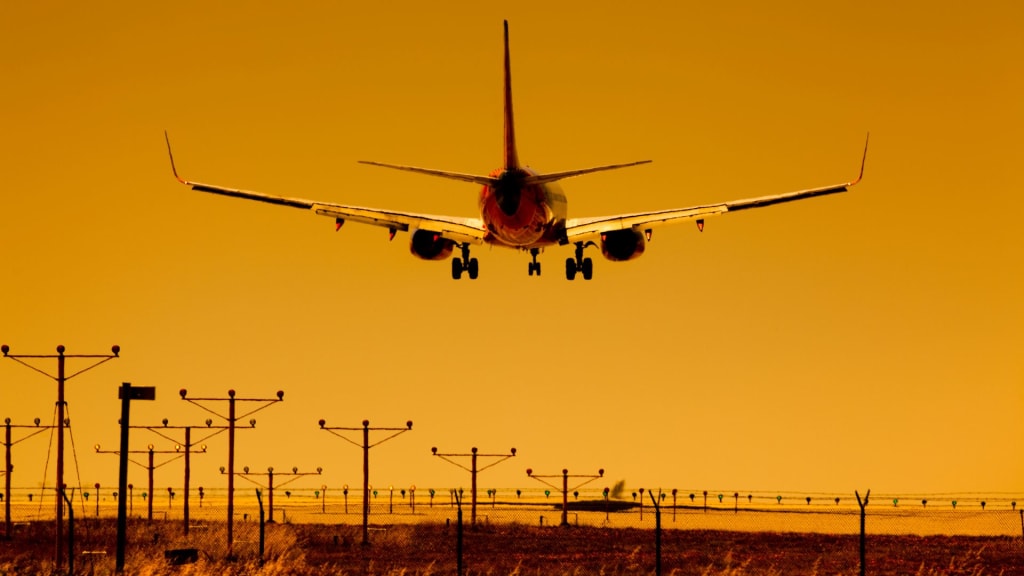I’m a plane riddled with bullets, and so are most survivors
Many abuse victims try to survive their trauma through healing journeys with perfect destinations, but it's not that simple.

***Trigger warning: I talk about abuse and trauma in this blog.***
There’s a type of rage only people who’ve been abused understand. It’s both dissociative and full of ancestral fury; silent but always present. Sometimes it lays dormant like winter in our veins, and sometimes it rips through us like a match struck against our scars.
It’s a rage of injustice, and the worst thing about it is its irony. First we’re victims and then we’re prisoners of an all-consuming fire we never agreed to carry. It was forced upon us and ignited against our will – crude and hideously executed. Regardless, it’s ours now. We have to tend to it and stop it from spreading.
After all:
- Hurt people hurt people
- Those who’ve been abused are more likely to abuse others
- We all have the power to end the cycle of trauma
As a collective, how many times have we heard these phrases? I’m guessing well over a billion. It’s a heavy burden while we’re reeling from the life-changing impact of abuse. The waitlist for therapy is woefully long and underfunded, while the cost of therapy is far higher than most of us can afford.
And so, we dissociate to quiet the rage. What other choice do we have? We mask; we strive; we succeed; we survive. But that rage lives on, ready to consume us at a moment’s notice. Words like triggers, anxiety, depression, and complex PTSD are diagnoses that help us deal with the effects of our trauma. However, there’s no diagnosis or cure for that fire. The minute it’s there and you dissociate to survive it, everything you were before is burned away, leaving you both broken and branded. And now you must learn to live with it, which is an injustice that will fuel those flames until the day you die.
Hence: irony.
As a result of this burden, you nurture a desire to watch the world burn — those who harmed you the first casualties. People won’t tell you it’s normal, but it is, for us. Injustice lurks around every corner and your jaded soul sees it all, always wondering why the world is so effortlessly fucked up. There isn’t an abuse victim alive who hasn’t fantasised about the empowerment of murder.
Alas, we also burn our loved ones with our cynicism, so we must learn to control the inferno of injustice so it only hurts us. We do what we must to carve out a life of peace and love; and to make it easier, we tell ourselves we’re warriors and goddesses with otherworldly resilience.
And for longer than we should, we believe our bullshit.
What we don’t know is it’s called survivor’s bias. It’s a phenomenon that makes us think we’re somehow special because we’re doing okay, maybe more than okay, or at least better than others we know. As a result, we’re living, breathing, social proof of human endurance. What badasses.
But it’s not that simple.
In WWI, British engineers observed a number of planes returning from battle riddled with bullet holes. Some areas received heavier fire than others, leading to the assumption that where there were holes, there were weaknesses. As a result, plans were made to reinforce those areas. However, the only reason the engineers even saw those bullet holes is because the planes returned safely, which meant they could survive being fired on in those places. They weren’t seeing the planes with critical damage. So, what they needed to do was reinforce the parts of the planes that received fewer bullet holes, as protecting those areas increased the likelihood of the planes making it back.
Surviving abuse is like surviving a war, which is why this analogy is particularly fitting. The same parts of our brains are affected by trauma, whatever the cause, and we’re wired to misconceive it, just like engineers were in WWI. When faced with our own survival story, we either identify as victims or warriors, despite the fact we’re both and neither. We’re the planes that made it home, riddled with bullets but in none of the critical areas. Our first instinct is to see the wound, fix it, and then stop it from happening again, which means we often overlook what kept us alive in the first place.
In terms of psychology, this phenomenon tells us we need to focus on the aspects of ourselves that allowed us to survive. Many of us spend a long time trying to prove something or deny something else, just so we can say we’re unaffected. It’s exhausting. And yet, healing journeys have to have a destination, right?
Regardless, the injustice of having to think about how to contain our fire means it bursts out of us in unhealthy bouts of cynicism and anger. But what if we don’t need to do that? What if we stop trying to make ourselves whole again and realise we’re the planes that survived enemy fire? It's more empowering than victimhood and it’s more realistic than divinity. It’s also fairer to other survivors, some of whom never make it home.
Of course, we’re humans, not planes, and our complexity extends beyond a simplified analogy. However, understanding we’re riddled with bullet holes and need to care for ourselves accordingly takes away the sting of injustice. When we feel like we ‘should’ be less affected, reminding ourselves we survived a war stops those intrusive thoughts overpowering us. Feeling overwhelmed, scared, or angry is also easier to handle and forgive when we view ourselves with more compassion.
It’s sometimes hard to see ourselves as victims, especially as that vulnerability takes us back to moments we lacked agency, but we are victims and there’s no shame in that word. Being riddled with bullets and learning to take them out is one part of the process. However, reinforcing the parts that are letting us take them out in the first place is the second most important step; after all, those bits are why we’re still here.
What this looks like is unique to each of us, and it’s also important to note it’s not about hardening or strengthening ourselves against enemy fire. If you fought back, it’s not about fighting harder. If you grew smaller, it’s not about becoming invisible. The reinforcements that paved the way for our emotional endurance are tenfold: our environment, privilege, genetics, and support networks all play a part. However, instead of a bulletproof sheet of metal nailed to our souls, we might reinforce ourselves through creative pursuits, self-care, reading, therapy, exercise, or charity work.
It doesn’t matter how we do it. As long as we recognise our survival story, which changed the fabric of who we are forever, we can nurture and embrace whatever it was that helped us reach safety. We need to stop hoping for a miracle cure to trauma and start treating ourselves as victims who deserve extra love and care – self or otherwise – while we learn how to thrive again, no matter how unfair and unjust this requirement is. Our rage, self-hatred, and shame are misconceptions. Feeling broken feels like failure, but it’s not. We don’t need to prove we’re resilient. We’re already the planes that made it home.
^^ Compilation of turbulent but successful plane landings! <3
About the Creator
Jodi Nicholls
As a freelance content writer, fantasy author, and reluctant minion of darkness, I spend my days devouring words and teaching my cats boundaries (which is relentless, unforgiving work...)
Escapism is life. Find me on Insta: @j.l.nicholls 😊






Comments (1)
I think this is such a powerful analogy.